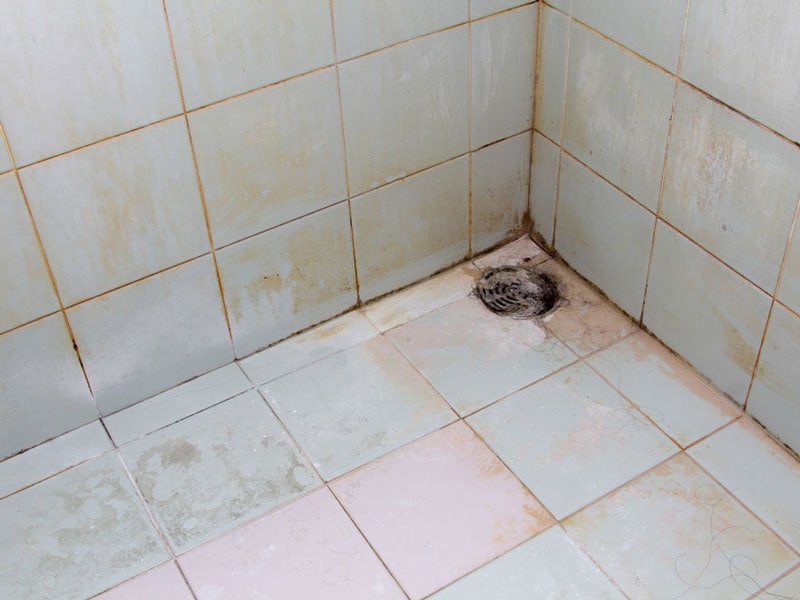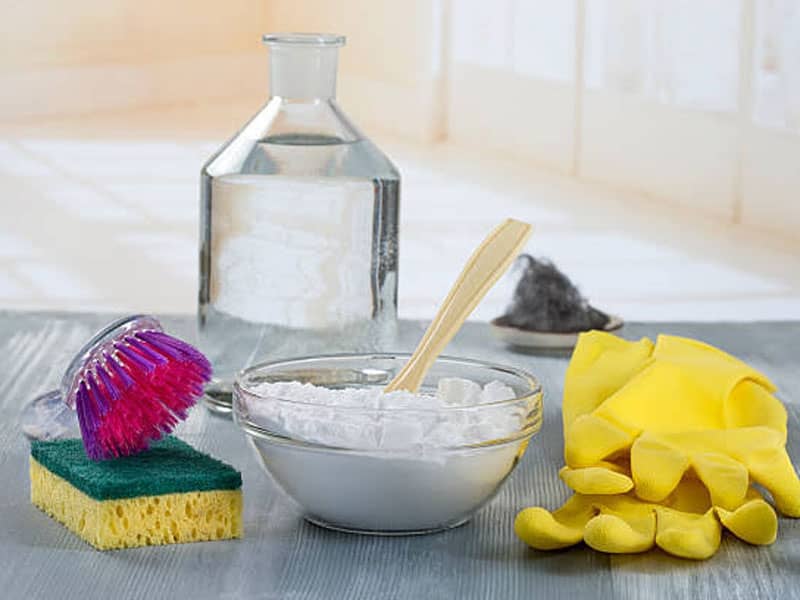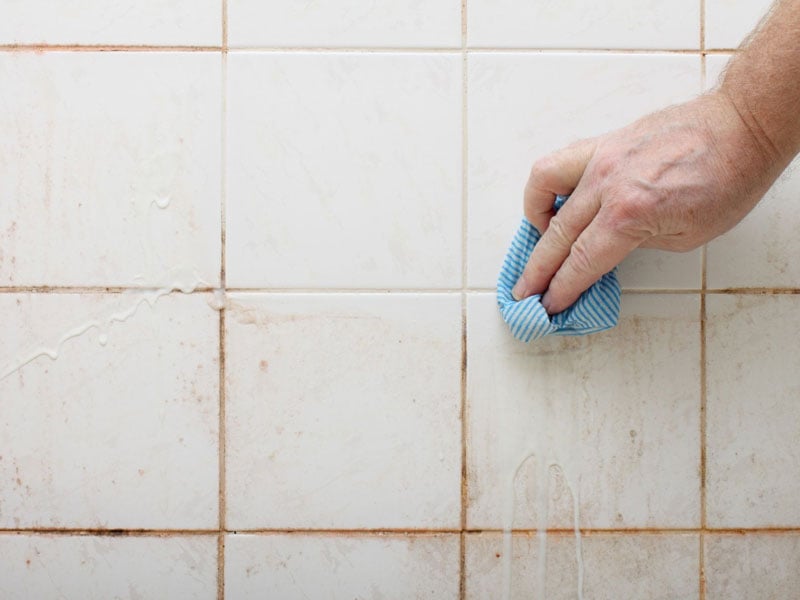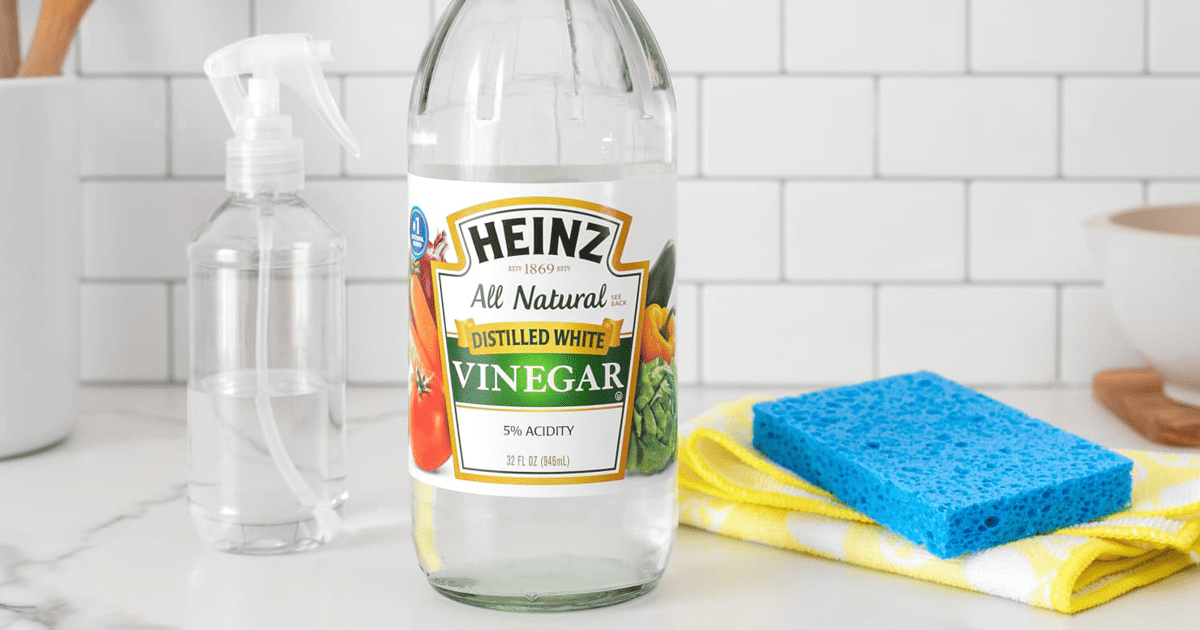How To Prevent Orange Stains In Shower
You’re tired of those stubborn orange stains in your shower. Here’s the good news – they can be easily prevented. High iron levels or bacteria might be causing them, but with a few tweaks to your cleaning routine and possibly even your water system, you’ll have a sparkling clean shower in no time.
Let’s dive into how you can keep these pesky stains at bay!

What Causes Orange Stains in My Shower
Have you ever wondered why your shower is plagued with unsightly orange stains? You may be dealing with a combination of factors. Factors such as hard water, which leaves mineral deposits, the presence of iron in your water supply that rusts over time, or even residue from your soap combined with these elements. Additionally, the growth of Serratia Marcescens, commonly known as ‘pink mold,’ can exacerbate staining issues by producing a reddish-orange pigment. (Learn How Long For A Bird Stuck In Chimney To Die)
Hard Water and Orange Stains in the Shower
You’re likely dealing with hard water stains in your shower if you notice an orange tint. This occurs when water contains high iron, calcium, and magnesium levels. Install a water softener or a specific water treatment to prevent orange stains. These solutions tackle the challenging water issue of keeping your shower clean and free from those unsightly orange hues.
Role of Iron in the Water Supply Causing Orange Stains
Iron in your water supply can often be the culprit behind those annoying rusty deposits on your plumbing fixtures. If your home’s water supply contains high levels of iron and magnesium, it likely results in orange stains in your shower. To prevent these eye-sore iron stains from recurring, consider installing a quality filter that specifically targets and removes high iron levels from your water supply.
Rust: A Major Cause of Orange Stains
Rust significantly contributes to those unsightly marks in your bathtub, and understanding its role can help you tackle the issue more effectively. Your water contains high levels of iron, which, when oxidized, forms pesky orange stains. A rust stain remover can be your best ally against these orange rust stains. Regularly treating the water in your home will keep those orange stains at bay.
Is Your Soap Scum Causing Orange Stains
The soap you’re using may react with minerals in your water, leading to a buildup of what we often call soap scum. This leftover soap scum could be causing orange stains in your shower. To prevent these unappealing stains, consider revising your choice of shower products. Regularly clean your shower, focusing on areas prone to scum accumulation, thus ensuring those pesky orange stains are kept at bay.

Impact of Serratia Marcescens or ‘Pink Mold’ on Shower Stains
You’ve probably noticed a reddish-brown residue forming in your bathroom, which could be a sign of Serratia Marcescens or ‘Pink Mold’ affecting the cleanliness of your space. This bacteria, called serratia, can create stubborn shower stains and impact your health.
To prevent orange stains in your shower, regularly clean with bleach-based products that kill pink mold and maintain dry conditions to inhibit growth. Stay vigilant to keep your bathroom safe and pristine.
Health Concerns Related to Orange Stains in the Shower
You might wonder, is breathing in rust dangerous, or what risks are associated with Serratia Marcescens? Understanding the health impact of high iron levels in your water is crucial, and how hard water can affect your well-being is vital.
Let’s delve into these aspects, including shower cleanliness and its significance for your health, providing clear, concise instructions and expert knowledge on cleaning techniques and products. (Read Standard Shower Drain Pipe Size)
Is Breathing in Rust Dangerous
Breathing in rust isn’t typically dangerous, but if pink mold in the shower causes orange stains, that can lead to respiratory issues. To prevent them from happening, check your water supply for high magnesium levels. Use effective cleaning solutions and stain removers regularly. Ensure good ventilation in the bathroom to keep it dry and mold-free.
If orange stains persist, it might signal a health concern needing professional attention.
Risks Associated with Serratia Marcescens
There’s a potential risk with Serratia Marcescens, known to cause infections in humans, particularly in damp environments like bathrooms. This pesky orange bacterium thrives on your shower walls. Don’t underestimate the risks associated with Serratia Marcescens. To remove orange stains, use bleach or a specialized cleaning product.
Regularly replace household water in your shower area to prevent its growth and maintain hygiene.
High Levels of Iron in Your Water: Health Impact
High iron levels in your water might not harm your health, but they annoy you. They can cause orange stains on plumbing fixtures. If you notice this happening first, contact a water treatment specialist. After running a water test, they’ll determine the best remedy for your well or tap water – it might even involve addressing magnesium in your water, too.
Impact of Hard Water on Health
While it’s not necessarily harmful to your health, hard water can cause various issues in your home and even affect your skin and hair. The impact of hard water on health is minimal but can create orange water stains, making it tough to keep your shower clean.
Use targeted cleaning techniques to get rid of orange stains caused by serratia marcescens or rust.
Shower Cleanliness and Health
Shifting from hard water’s health impact, let’s focus on shower cleanliness. Stains are caused chiefly by leftover soap and hard water. The best way to eliminate these is to keep the shower dry after use and regularly remove soap residue.
White vinegar is a great helper here – just a cup will make it easy to clean and leave your shower sparkling! (Read When Can I Remove Utility Flags in My Yard)

How to Clean Orange Stains in Your Shower and Bathtub
When it comes to tackling those stubborn orange stains in your shower or bathtub, there’s a variety of methods you can employ. Everyday household items like white vinegar and baking soda are surprisingly effective at removing these unsightly blemishes.
On the other hand, lemon juice mixed with bleach or professional cleaning products could provide a more robust solution. Using a spray bottle might make cleaning more accessible and more efficient.
Cleaning Orange Stains with White Vinegar
It’s a good idea to use white vinegar for cleaning orange stains, as it can effectively remove hard water and iron deposits.
- Pour equal parts of lukewarm water and vinegar into a spray bottle.
- Sprinkle baking soda on the stain, then spritz with the vinegar solution.
- Even if your water harbors bacteria called serratia marcescens, turning showers pink, lemon juice can help, too!
Using Baking Soda to Remove Orange Stains
After successfully using white vinegar to lighten those pesky orange stains, it’s time to kick it up a notch. Grab your baking soda, and let’s get started. Baking soda works wonders on stubborn stains due to its mild abrasive nature.
Apply a paste with water to the stain, let it sit for 15 minutes, then scrub away. You’ll be amazed at the results!
Can Lemon Juice and Bleach Help Clean Orange Stains
Lemon juice and bleach are powerful ingredients that should not be overlooked when tackling stubborn bathroom stains. Lemon juice is highly effective in breaking down rust deposits with its citric acid. On the other hand, bleach is great for eliminating bacteria and brightening surfaces. To use lemon juice, mix equal parts of lemon juice and water, then apply the mixture to the stain. Let it sit for 10 minutes before rinsing it off. This method works well for most colors
For deeper stains, a diluted bleach solution can be used. It is essential to be cautious and apply the bleach carefully. After applying the answer, let it sit for 15 minutes before thoroughly rinsing the area.
It’s crucial always to remember one important rule: never mix bleach with other cleaners! Mixing bleach with other substances can produce dangerous fumes and cause harm. So, using bleach independently and following the instructions carefully is best.
Professional Cleaning Products for Orange Stains
For tough grime and residue, professional cleaning products often pack a more potent punch than home remedies. Consider using rust removers like CLR or Iron Out for stubborn orange stains. They’re specifically designed to tackle mineral deposits and are easy to use. Remember: always follow the manufacturer’s instructions, wear protective gear if recommended, and ensure good ventilation when using these powerful cleaners.
Does a Spray Bottle Make Shower Cleaning Easier
Having explored professional cleaning products, let’s now consider methods. Have you ever thought about using a spray bottle for shower cleaning? It’s a game-changer! Fill it with your chosen solution and spritz generously on orange stains. Let it sit, then scrub and rinse off. This method is easy and efficient and allows you to target specific areas effectively.

How to Prevent Orange Stains from Recurring in the Shower Area
As you navigate the challenge of managing orange stains in your shower, understanding the role of a water softener becomes crucial. Frequent cleaning is not only vital for maintaining cleanliness but also plays an integral part in preventing those pesky orange stains from reoccurring.
This discussion’ll explore keeping your shower dry as an easy preventive technique, delve into various water treatment solutions, and highlight ways to stop rust and iron stains from spoiling your bathroom’s aesthetic.
The Role of Water Softener in Preventing Orange Stains
Water softeners play a crucial role in preventing orange stains by reducing the concentration of iron and other minerals in the water. They work by replacing these minerals with sodium ions. As a result, you’ll notice fewer stains on your shower walls and fixtures. Always ensure your softener is correctly installed and maintained for optimal performance.
It’s an effective way to keep those unsightly orange marks at bay.
Prevent Orange Stains with Regular Cleaning
Regular cleaning is necessary to keep those unsightly marks off your bathroom fixtures. Don’t let soap residue build up; wipe it down after every use. Use vinegar and baking soda for a deep cleanse weekly. For stubborn stains, consider a specialized rust remover. (Read Hot Water In Some Faucets But Not Others)
Keep Your Shower Dry: An Easy Way to Prevent Orange Stains
Keeping your bathroom dry is one of the simplest ways to ward off those pesky rust marks. After each shower, squeegee or towel-dry the walls and doors. This prevents moisture buildup, which can lead to mold, mildew, and orange stains. Keep a good airflow by using an exhaust fan or opening a window. Remember, consistent drying habits are vital in maintaining a clean bathroom free from stains.
Water Treatment Solutions to Prevent Orange Stains
Investing in a groundwater treatment system is an effective method to tackle those pesky rust marks. Water softeners remove minerals, causing stains, while filters catch the sediment. Consider a reverse osmosis system for best results; it’ll significantly reduce contaminants. Remember, proper maintenance ensures the longevity of these systems.
It’s time you stepped towards stain-free showers and healthier living conditions!
Preventing Rust and Iron Stains from Occurring
You’ll find that tackling the issue of rust and iron marks head-on can make a world of difference in maintaining the cleanliness of your home. Regularly clean surfaces with rust-removing products, ensure proper ventilation to reduce dampness and consider installing water softeners or filters if you have hard water.
Don’t let these stubborn stains ruin your beautiful bathroom; be proactive and prevent them before they occur.

Best Way to Get Rid of Orange Stains in Your Shower
You’re about to master the art of maintaining a pristine bathroom as we delve into practical ways to remove soap scum and those pesky orange stains. We’ll also guide you through top-rated products for tackling rust and iron stains and professional services to handle stubborn cases when necessary.
Furthermore, you’ll learn step-by-step procedures for deep-cleaning your bathtub and shower and an ultimate stain remover guide tailored to those unsightly orange blemishes.
Effective Ways to Remove Soap Scum and Orange Stains
Don’t forget that regular removal of soap scum can effectively prevent mold formation and orange water stains in your shower. Use a mix of vinegar and baking soda for best results. Scrub gently with a non-abrasive sponge, then rinse thoroughly with warm water. For stubborn stains, use an approved commercial cleaner. Maintenance is critical, so make this routine part of your weekly cleaning schedule.
Products to Get Rid of Rust and Iron Stains
A variety of products on the market are designed to tackle rust and iron deposits in your home. The key is choosing the right one for your needs. Options like CLR Bathroom Cleaner or Iron Out Stain Remover work well for tough stains. Always follow the instructions carefully, apply them correctly, and rinse thoroughly afterward.
Professional Shower Cleaning Services for Stubborn Stains
If you’re dealing with tough rust or soap scum, it’s often worth considering professional cleaning services. Experts use high-grade products and advanced techniques to remove stubborn stains without damaging surfaces. They’ll thoroughly clean your shower, ensuring every corner is spotless. Remember, regular professional cleaning can prevent future stain buildup and prolong the life of your bathroom fixtures.
Steps to Deep-Cleaning Your Bathtub and Shower
After exploring professional services for stubborn stains, let’s focus on deep cleaning your bathtub and shower. Begin by applying warm water and vinegar, scrubbing gently with a soft brush. Rinse thoroughly before using baking soda paste to tackle more challenging spots.
Don’t forget to clean the grout lines too! Lastly, rinse again and dry the area entirely for a shiny finish.
The Ultimate Stain Remover Guide for Orange Stains
Let’s dive into the ultimate guide for removing those stubborn rust-colored marks from your bathtub and tiles. Start by applying lemon juice and warm water to the stains. Use a specialized rust stain remover like Iron Out for more challenging spots.
Always remember to rinse thoroughly after cleaning. Regular maintenance is vital, so keep your bathroom dry and clean to prevent these pesky stains in the future.
Conclusion
In conclusion, don’t let orange stains ruin your shower experience. Use natural cleaners like lemon water or baking soda and vinegar to scrub away these pesky marks. Prevent future stains by keeping your bathtub dry and clean, and consider updating your water filtration system.
If the stains persist, seek professional advice for stubborn marks or consider a tub replacement. Remember, a clean shower is just a few simple steps away!







